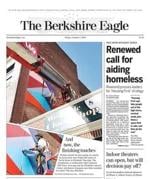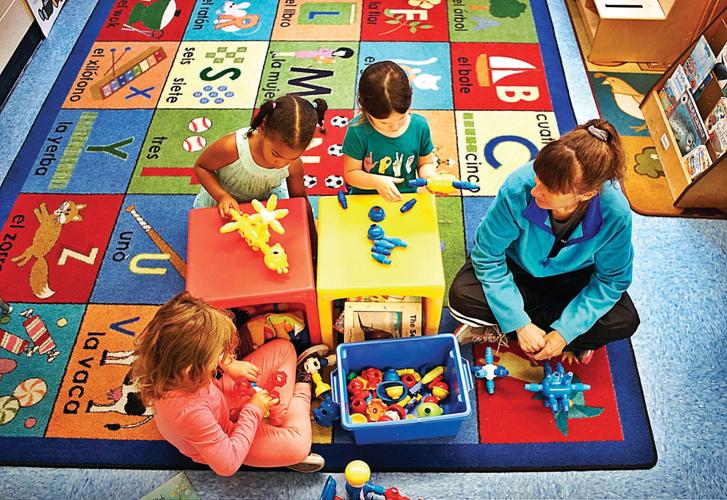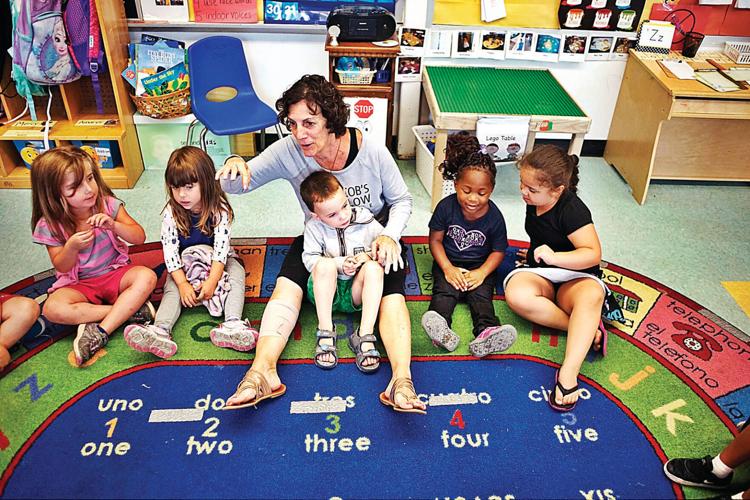PITTSFIELD — There's been a lot of clamor over the state of early childhood education in the commonwealth over the past year, including the give-and-take battle to raise investments in programs, teachers, resources and infrastructure.
Compounding the issue is the fact that there's not a lot of solid science and data to define a "high-quality" early childhood education experience for all the different kinds of children and family needs that exist. It's estimated that some 40 percent of 3- and 4-year-olds are not in a formal preschool, but there is no true count or register of all the school and care settings that exist in the commonwealth and whether they're helping children progress developmentally and socially.
So no one really knows the full range of settings preschoolers are spending their days in, and how well that time's being spent.
This summer, however, the Harvard Graduate School of Education, announced a long-term partnership with the Saul Zaentz Early Education Initiative, supported through a $35.5 million gift from the Saul Zaentz Charitable Foundation, to take a first-of-its-kind deep dive into examining and documenting what's happening in school, agency, and home-based settings over time. The hope is that the results will teach educators, caregivers, agencies and legislators how to effectively scale and wisely invest in their time, money and also shape policies around early childhood programs in Massachusetts.
Children and families are already being registered to voluntarily participate in what's known as the Early Learning Study at Harvard, which will include approximately 5,000 Massachusetts-based children who will be between the ages of 3 and 4, as of Sept. 1. Surveyors will then keep in touch with the children and their families at least twice a year, over the next four years, to track their growth and movement through various kinds of settings and activities. A Massachusetts-based research organization called Abt Associates is working with Harvard researchers to carry out the study and manage the data collected.
Being counted in the county
The Berkshire County communities of Dalton, Lee and Pittsfield are among the target ZIP codes researchers are using to ensure that their survey sample represents the diverse demographic data for this age group. Children from about 100 communities are participating in total.
Berkshire County Head Start Executive Director Stacy Parsons confirmed that children and families from her agency are participating in the study, and she said she's looking forward to the ultimate findings.
"Just being in school doesn't count. Quality matters in making a difference in children's lives," she said.
Parsons attended a July 19 articulation agreement signing ceremony between Berkshire Community College and the Massachusetts College of Arts to create a pathway with transferable credits to help aspiring early childhood educators easily transfer as graduates of BCC's associate degree program to MCLA's bachelor's degree program in the field.
There, she and Patricia Kay, an assistant professor of early childhood education at Berkshire Community College, agreed that having well-educated and enthusiastic early childhood teachers can help children develop a love of and interest in learning.
Kay said having a longer-term study will help determine whether that early influence has a lasting effect. "You want to see the changes over time," she said.
"Kids and families change educational settings often, so you want to know what happens when they get to kindergarten and grades 1 and 2," Parsons said.
Having that information alone can greatly influence how a child is received and supported throughout their transition from an early childhood setting into their first years in elementary school.
"The data on kids between 3 and 4 years old doesn't tend to follow them, so their kindergarten teacher doesn't see that data," said Doug McNally, who co-chairs the Berkshire United Way's Early Childhood Impact Council with Karen Vogel.
"The way you provide experiences and environments differ in early childhood, but the bottom line is how you get kids to be interactive and be curious," McNally said. Those are the qualities, he said, that lead to lifelong learning.
McNally has previous worked with the study's coordinators, Nonie Lesaux and Stephanie Jones, in other Massachusetts early childhood groups and councils. Both based at the Harvard Graduate School of Education, Lesaux is the Juliana W. and William Foss Thompson Professor of Education and Society, and Jones is the Marie and Max Kargman Associate Professor in Human Development and Urban Education. Together, they bring a broad range of experiences and thoughtful perspectives to the table on how to conduct a study over several years, knowing that the subjects will be prone to changes in their family, education and care settings.
Meeting children where they're at
Based on census estimates, there are approximately 160,000 children between the ages of 3 and 4 years old living in Massachusetts.
Lesaux says that, "One of the shortcomings in all of the current research is that we haven't had a good look at formal care settings, be it a community based center, a 4-year-old room in a preschool, or Head Start. We also know that in Massachusetts, about 40 percent of 3- to 4-year-olds are in informal care; an arrangement with a neighbor up the street, a church, a drop-in program, etc. Our commitment with this study is to find out what it's like inside all of these settings."
To do so, researchers will meet with children in person and have them do different activities that will essentially gauge the rate at which kids' skills and behaviors are developing.
Another thing the researchers are trying to better understand is how well a family's priorities for early education and care are being met by the choices that are available to them. This means looking at how parents choose a child care or preschool setting based on their schedules, income levels, proximity to various early childhood settings, and goals and preferences in terms of what parents and guardians want for their children, be it structure, rigor or more relaxed opportunities for play.
"The reality is that most parents today need some type of preschool for their children and high quality options are not available at scale," Jones said.
Lesaux said that as communities and states look to expand and improve early childhood education and care offerings to families, it's important to base policies, as well as strategies for expansion and enhancement on up-to-date research that reflects and details a region's specific needs.
"If you're going to make the move to put money into it, you have to justify the investment," McNally said.
And it can't be about investments alone, said Jones. "We need to work on solving the problem of improving quality as we increase access. It's a simple supply and demand issue," she said.
Jenn Smith can be reached at 413-496-6239.
More on the Early Learning Study at Harvard
https://zaentz.gse.harvard.edu/early-learning-study-harvard or 1-888-738-6663, facebook.com/ELSAHStudy





